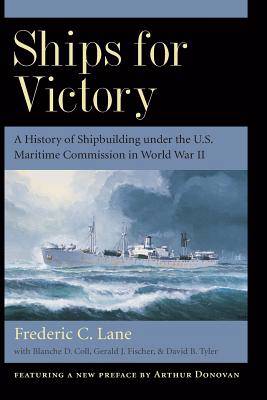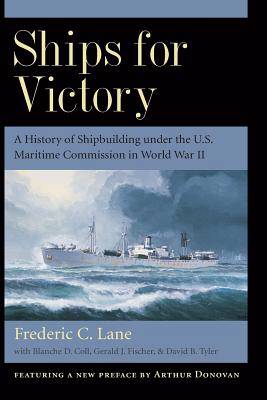
- Retrait gratuit dans votre magasin Club
- 7.000.000 titres dans notre catalogue
- Payer en toute sécurité
- Toujours un magasin près de chez vous
- Retrait gratuit dans votre magasin Club
- 7.000.000 titres dans notre catalogue
- Payer en toute sécurité
- Toujours un magasin près de chez vous
Ships for Victory
A History of Shipbuilding Under the U.S. Maritime Commission in World War II
Frederic Chapin LaneDescription
During World War II, America's shipbuilding industry, mobilized under the U.S. Maritime Commission, set records of production that have never been equaled. Given the daunting task of building ships faster than they were being sunk, shipbuilding firms across the country found new ways to increase their efficiency and scale of production. Huge new shipyards were built, a labor force of 640,000 was employed, and over 55 million deadweight tons of ocean-going ships were delivered, including the famous Liberty and Victory ships. First published in 1951, Ships for Victory chronicles this remarkable wartime program in magisterial detail: the development of revolutionary construction methods; the upheavals in management, awarding of contracts, and allocation of steel and other materials; the recruitment, training, housing, and union activities of the workers; the crises, confusions, and scandals that arose; and the role of shipbuilding within the total war effort.
Spécifications
Parties prenantes
- Auteur(s) :
- Editeur:
Contenu
- Nombre de pages :
- 944
- Langue:
- Anglais
Caractéristiques
- EAN:
- 9780801867521
- Date de parution :
- 21-09-01
- Format:
- Livre broché
- Format numérique:
- Trade paperback (VS)
- Dimensions :
- 162 mm x 229 mm
- Poids :
- 1265 g







